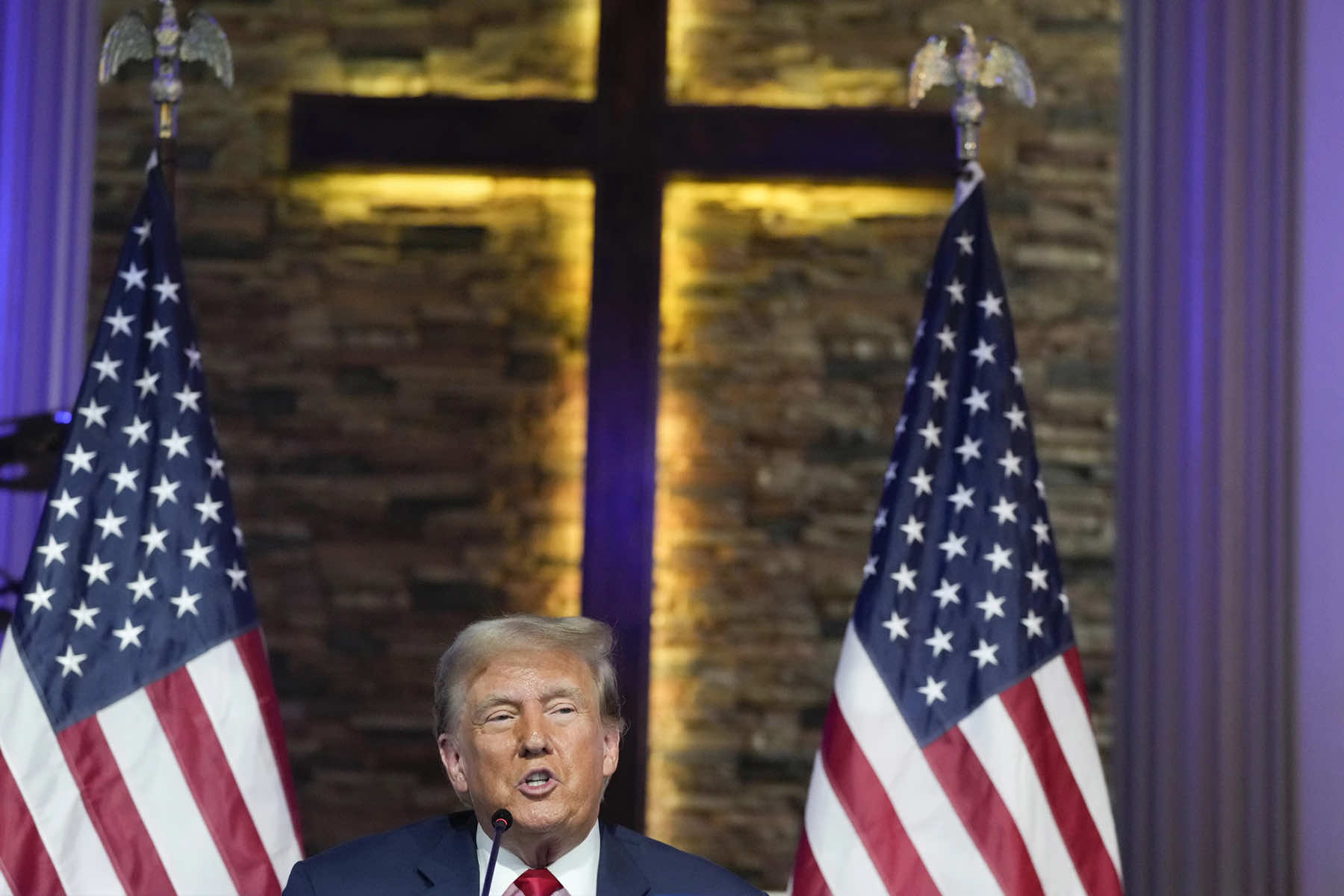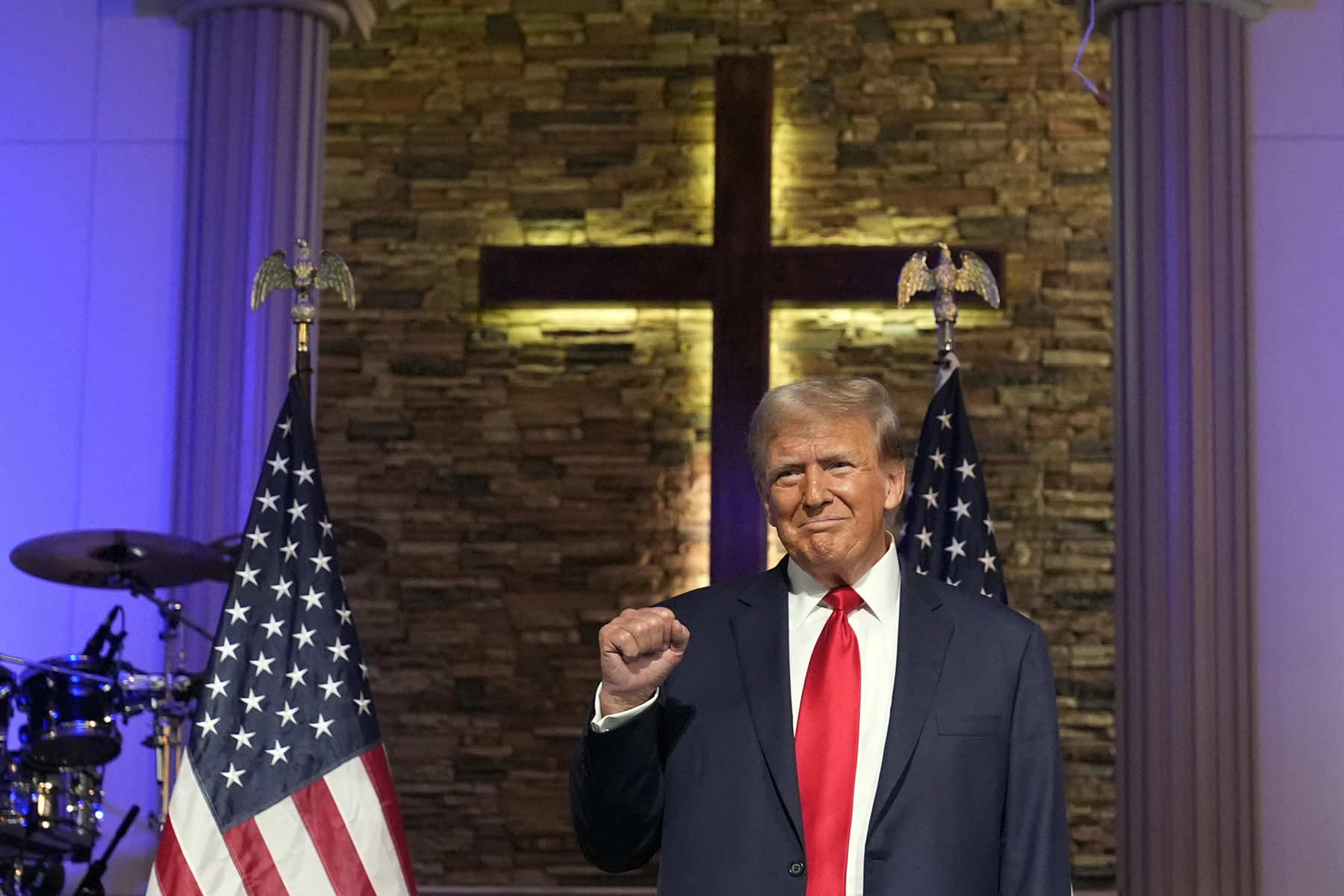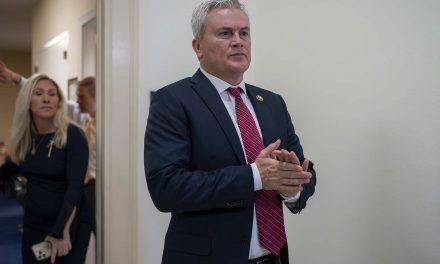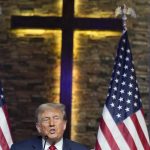
Donald Trump’s second term as president exposes a stark reality for the United States. He has used every tool at his disposal to stifle dissent, distort public perception, and concentrate power in his own hands. And Americans seem to be okay with that, since they knew exactly who he was when they re-elected him.
His brazen disregard for democratic principles mirrors the tactics of notorious demagogues who replaced freedom with fear and justice with coercion. Trump’s administration has followed a calculated campaign to undermine governmental checks and balances, creating a climate of intimidation designed to silence critics and elevate his self-proclaimed infallibility.
Trump’s leadership in the early days of his second term represents a continuation and escalation of authoritarian tendencies that have gained momentum over the past few years. He routinely undercuts essential pillars of democracy, such as an independent judiciary and a free press, by belittling judges who issue rulings he finds inconvenient and launching vindictive tirades against credible news outlets.
The systemic assault on institutions that serve the public interest defies any commitment to transparency. Such an approach echoes the manipulative schemes of rulers who dismantled political safeguards to strengthen their own grip on power in 1930s Europe.
Trump’s consolidation of authority rests on a cult of personality that rewards blind loyalty above competence, moral conviction, or critical thinking. Those who question his actions face accusations of treachery, ensuring that dissenters are subjected to unrelenting scrutiny.
Historical figures notorious for sowing division and controlling information share these traits, employing intimidation as a weapon to maintain power. Trump’s embrace of conspiracy theories and combative rhetoric illustrates his willingness to sacrifice truth for personal gain, shaping a national narrative that casts doubt on facts and denigrates reasoned debate.
The hourly firehose of misinformation from Trump is more than a political tool, it is a pillar of governance. His speeches and press conferences feature manufactured allegations to incite fear, followed by false claims of how he will solve the problems. The dramatic farce is designed to portray him as the righteous savior of a country besieged by unseen enemies.
Experts who challenge his assertions find themselves branded as elitist conspirators, undermining public trust in those who have dedicated their lives to understanding complex issues. By casting knowledgeable voices as threats to national unity, Trump paves the way for policies immune to legitimate questioning.
Falsehoods are no longer the product of momentary lapses in honesty, but a systematic method of domination. Each repeated untruth creates a parallel reality in which the convicted felon who occupies the White House can issue proclamations that override verifiable evidence.
Observers note that totalitarian regimes throughout history have used precisely these tactics: flood the public sphere with lies until confusion reigns, then promise stability by demanding submission to a single figure’s narrative. Trump’s reliance on misinformation not only keeps his supporters reliant on his words but also numbs the broader population to the dangers of distorted facts.
The deliberate subversion of truth unfolds alongside divisive policies that sow discord among Americans. Trump frequently demonizes immigrant communities, fueling xenophobia under the pretense of national security. He has championed aggressive law enforcement measures that disproportionately impact minority groups, while claiming to defend a notion of patriotism that excludes vast segments of society.
Such contradictions between proclaimed ideals and concrete actions underscore his willingness to exploit social fractures for political advantage. He positions himself as a champion of traditional American values while systematically degrading those foundational principles.
Trump’s self-appointed image as a moral crusader further highlights his duplicity. He seeks the favor of religious conservatives while advocating policies that separate families and destabilize international alliances. He proclaims devotion to liberty while railing against the free press.
He claims to protect American workers yet pushes for deregulation that harms workplace conditions. Historical examples abound of leaders who stirred patriotic fervor while constructing systems that stripped citizens of basic rights. Trump’s record shows the same pattern, using grand promises and theatrical bravado to hide detrimental outcomes.
Trump has masterfully wielded Christianity as a political weapon, bending it to serve his authoritarian ambitions while discarding its core tenets. He presents himself as a defender of faith, despite his well-documented history of dishonesty, cruelty, and self-interest. Evangelical leaders who once claimed to champion morality have abandoned even that illusion in exchange for political power, standing by him as he flouts the very values they profess to uphold.
Trump’s messaging is transforming American Christianity into an instrument of submission, urging believers to see him not as a fallible leader but as anointed by God. His rhetoric reframes criticism of him as an attack on faith itself, ensuring that those who dare challenge his authority are cast as enemies of Christianity.
In return, his most devoted followers rationalize every betrayal of Christian doctrine, excusing policies that separate families, demonize the poor, and fuel racial division. The Sermon on the Mount is ignored in favor of a new gospel of vengeance, power, and exclusion.
This unholy alliance between Trump and his religious base mirrors historical patterns in which authoritarian figures co-opt faith to justify oppression. By draping himself in religious symbolism while governing with cruelty, Trump exploits the deep-rooted fears and grievances of those who see their cultural dominance slipping away. The result is a faith that serves power rather than principle, a movement where morality is dictated by loyalty, and a religious identity that demands obedience instead of reflection.
These actions corrode public trust and invite catastrophic consequences for democracy. As Trump’s second term advances, his contempt for dissent accumulates, and the nation faces a government unmoored from fundamental checks. Legislators and judges who attempt to counter his overreach endure character assaults, diminishing the independence of branches that were designed to limit presidential power. Public discourse devolves into polarized shouting matches, as the administration’s disregard for verifiable facts normalizes ideological fanaticism.
The broader danger lies in the long-term erosion of democratic structures. Societies that have succumbed to autocratic leadership often grapple with irreversible damage, including weakened institutions incapable of serving the public interest.
If the United States continues along this path, the founding ideals risk becoming hollow platitudes recited by a government that values loyalty over constitutional obligations. Once authoritative norms are replaced with the whims of a single figure, any restoration of balance becomes exponentially more difficult. The sad reality is that it may be well past the point of no return, and America is beyond repair.
Opponents of Trump’s agenda must confront the administration’s disinformation head-on by rigorously challenging unsubstantiated claims and exposing contradictions in his policies. Media outlets that still seek facts must persist in their journalistic duty, even as the president’s supporters condemn all dissenting coverage as propaganda. Civic organizations, advocacy groups and individuals unwilling to accept tyranny must demonstrate unwavering dedication to upholding the democratic process.
Accountability stands as the critical line of defense against an unchecked executive. Elected representatives who care about preserving the rule of law must conduct vigorous oversight and refuse to condone abuses of authority. Grassroots activism can galvanize communities to recognize that Trump’s defiance of institutional safeguards represents a direct threat to the Constitution. Even those who once supported his crusade in the name of populism must acknowledge that the consolidation of power is antithetical to genuine freedom.
A steadfast call for strong voter participation, robust legal action and consistent public engagement remains vital. Such measures alone can expose the administration’s exaggerations and concealments. Allowing disinformation to flourish ensures that the president’s distortion of national priorities will endure well beyond his time in office. Each citizen must recognize the gravity of this moment and reject complacency. Democratic values will wither if left undefended.
Trump’s second term has become an open invitation to authoritarianism under the pretense of patriotism. His blatant manipulation of public trust, routine demonization of critics and relentless power grabs confirm a methodical dismantling of core democratic ideals. History teaches that ignoring such warnings guarantees deeper entrenchment of despotism.
The hardships inflicted by demagogues who bank on division and falsehoods remain etched in the memories of societies that lost their freedoms. This presidency embodies every lesson those histories provide, and the consequences will be dire if Americans fail to act.
The nation cannot overlook the stakes. The moral contradictions, institutional attacks and calculated misinformation campaigns form a blueprint for the entrenchment of autocratic rule. The cost of unchecked power is the transformation of a diverse democracy into a rigid apparatus under the command of one individual’s whims.
Trump’s agenda stands as a direct affront to the promises on which this country was established. Without accountability and unyielding civic determination, the damage will be profound and enduring. There is no gentle resolution to this crisis.
The American public must confront Trump’s authoritarian model by endorsing candidates and measures that restore respect for truth, justice and balanced governance. Public servants who legitimize his abuses of power must be challenged and replaced. Future generations will inherit the consequences of these years, and they will judge whether citizens rose to defend what was right or surrendered to manipulation and coercion.
Trump’s second term represents a turning point that demands collective resolve. Every step taken now sets the precedent for how forcefully a president can bend the Constitution to personal will. The nation’s foundational ideals hang in the balance, and failure to answer Trump’s threat will cement an era of American authoritarian dominance that betrays its founding principles of liberty and justice for all.
© Photo
Carlos Osorio (AP)















